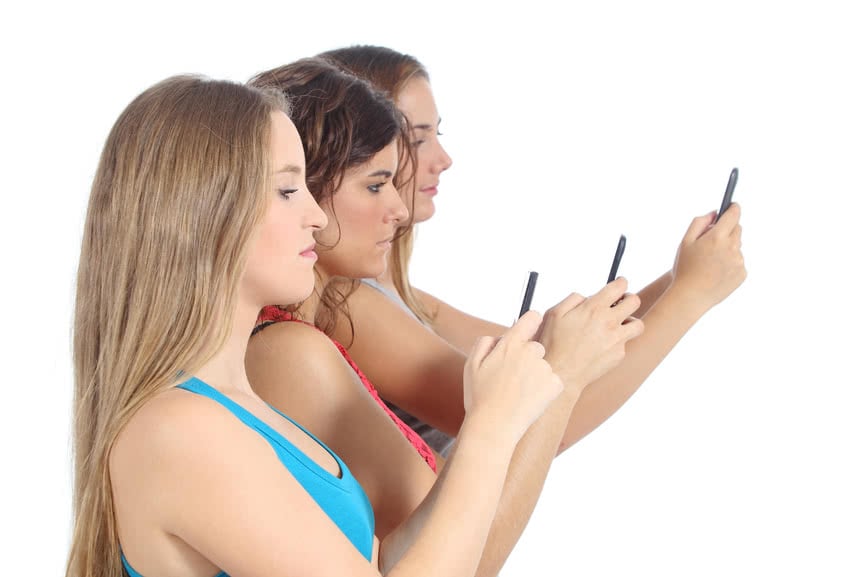Social Media Addiction? Best Ways to Minimize Your Risk

 Did you know? Screen usage triggers a dopamine release. That is to say, it’s addictive. Where are most people spending a majority of their screen time? On social media. Whether Facebook, Twitter, Instagram, Pinterest, Google Plus, WhatsApp, or other portal, hundreds of millions of people communicate virtually, via a screen (be it PC, laptop, tablet or smartphone) every second.
Did you know? Screen usage triggers a dopamine release. That is to say, it’s addictive. Where are most people spending a majority of their screen time? On social media. Whether Facebook, Twitter, Instagram, Pinterest, Google Plus, WhatsApp, or other portal, hundreds of millions of people communicate virtually, via a screen (be it PC, laptop, tablet or smartphone) every second.
Social media’s lure is the ability to constantly and instantly see real-time news and picture-perfect uploads from your contacts. Social media portals bank on the appeal of undetected voyeurism, which, it turns out, most people like to do. It’s normal to want to know about others, after all. All of this easily leads to social media addiction – the duality of needing to stay in touch constantly, while being physically drawn into that dopamine high-inducing screen. It’s rampant, and it’s trippy.
How can you curb your social media appetite, and stave off its addictive pitfalls? Thankfully, it’s doable, and here are some top tips:
Minimizing risk
- Know when to say no. Ask yourself: Why am I lurking on this site? If you’re feeling whole and confident, it will probably be fine. If you’re feeling vulnerable, chances are good that logging onto social media will make you feel even more vulnerable. It’s a good idea to stay away for now and save it for later when you’re feeling stronger. (Check out two secrets for how to use social media to make you feel better.)
- Maintain routine offline times. No matter how you’re feeling, keep social media in its place by maintaining a balance between it and real interactions. To do so, schedule in regular waking hours when you do not access social media, or even your cell phone. Often, that’s dinner time, but it can be any time of day, or even a few times per day. Those unplugged times remind us of who we are, how we relate with whomever is in our immediate midst, and/or that we can be okay, alone. Unplugging forces us to interact with real people in real ways, and relax in ways impossible with technology.
Alternative ways to connect
 Whether you’re staying off social media because you’re feeling vulnerable, or you’re on your scheduled “off times”, here are reminders of ways to connect which keep you protected from the pitfalls of a social media addiction. (Yes, in just a few short years we’ve reached the point where people need these reminders! So retro!)
Whether you’re staying off social media because you’re feeling vulnerable, or you’re on your scheduled “off times”, here are reminders of ways to connect which keep you protected from the pitfalls of a social media addiction. (Yes, in just a few short years we’ve reached the point where people need these reminders! So retro!)
- Make more phone calls. Even though you’re not in the same place, the individual attention and shared speech intonations are a very solid means for truly connecting. Make sure to ask how the other person is doing and express gratitude. This alone has been shown to increase a sense of connection and boost mood.
- Increase Face to Face. Whenever you can, try to meet up in person. No need for explanation here.
- Write a letter – hand, ink, paper. You don’t even have to mail it. Just getting pen to paper gets out our thoughts and emotions in a way which keyboarding does not.
- Write an email to someone supportive. If pen to paper isn’t your thing, perhaps consider writing an email to someone supportive. Take the time to describe how you’re doing and what’s on your mind. Here again, you don’t have to send it – either way it helps you vent and work through your issues.
- Actively listen. Find the time to ask someone about themselves and listen to their answers to the point that you feel a sense of connection to their experience. Not only is thinking others ahead of yourself good for you, but putting yourself in someone else’s shoes is a powerful way to connect.
In the end it’s all about knowing ourselves, and knowing how to maintain our balance. Using the above tips will help you prudently schedule screen time usage to avoid the pitfalls of social media addiction. This way, you can focus on using social media to your advantage.
Looking for more help in understanding anxiety? Learn more about my book Hack Your Anxiety and access free tools to help you manage the fear and anxiety going around the world today.